As a working class lad growing up among the coal bings of Fife, Henry McLeish could hardly have imagined that one day, he’d be sitting in the Oval Office with president George W Bush, having a private audience with Pope Jean Paul II or hosting the then vice president of China Hu Jintao.
While history records that his short tenure as first minister of Scotland ended in 2001 amid the so-called “Officegate” – “muddle not a fiddle” – expenses scandal, the “great experiences” he had whilst in office are ones that stay with him to this day.
Brought up in a strong socialist mining community where voting Labour was “as easy as breathing”, the former Leeds United and East Fife professional footballer became leader of Fife Regional Council and spent 16 years as either MP or MSP for Central Fife.
His spell as Scottish Labour leader and First Minister came about in 2000/2001 following the sudden death of Scotland’s first First Minister, Donald Dewar.
But having joined the Labour Party 54 years ago, Methil-raised Mr McLeish has warned there’s “no room for complacency” from Labour when it comes to winning over Scotland at the July 4 General Election.
Labour politics were at heart of mining community where Henry McLeish grew up
Mr McLeish, 75, was born in Methil, a quarter mile from what is now Keir Hardie Street – a residential area named after the founder of the Labour Party.
The son and grandson of a miner, socialist politics was in the DNA of these communities.
Yet with the old industries long gone and the “community of interests” that went with them broken, former Labour heartlands such as those covered by his old Central Fife seat have been dominated by the SNP, both at Holyrood and Westminster, since 2007 and 2011.
Indecisiveness over Brexit was blamed for Labour’s pummelling at the 2019 European elections – the UK’s final participation in a European Parliament election before leaving the EU on January 31 2020.
Now, with UK Labour leader Sir Keir Starmer vowing to make Scotland “central to the mission” as recent polls indicate an election meltdown for the SNP on July 4, Mr McLeish has warned that Labour need to “put a premium on developing devolution” if the heat is to be taken out of the independence question.
Henry McLeish has a message for Labour leader Sir Keir Starmer
“The SNP have been showing a reduction of support in opinion polls etc,” said Mr McLeish in a pre-General Election Courier interview marking the 25th anniversary of devolution.
“But one of the things they’ve got to remember is that while support for the SNP has gone down, support for independence has remained pretty steady.
“I don’t believe for a minute that support for independence is about independence.
“There’s a restlessness. I think people are fed up with the Conservative government treating Scotland with disrespect.
“So the message for Labour that enters government this year is that it must continue to put a premium on developing devolution. There’s no room for complacency here.
“I think there’s a clear message to Keir Starmer. Scotland is vital, not only in sending MPs to Westminster. But in terms of the future nature of the UK, it’s absolutely vital that a) Labour is an alternative to independence, and b) it must not think for a minute that the SNP will go away, because the SNP is about heart, it’s about emotion, it’s about mind.
“Patriotic Scots will not continue to be treated in the way that they have been by the Tory party over the last decade.”
Henry McLeish feels ‘sad’ when he reflects on 25 years of devolution
Mr McLeish, who would prefer to remain in the UK, has previously said he’d be prepared to vote for independence depending on reform of how Westminster works with the devolved governments.
Having chaired the constitutional steering group, which set up the principles, the ideas, and the “modus operandi” which would be adopted by Holyrood, he said the establishment of Holyrood in 1999 undoubtedly changed the face of Scottish politics forever.
Importantly, it took powers away from a highly centralised Westminster.
But when Mr McLeish reflects on 25 years of devolution and its many achievements, he feels “sad” that after the Scottish independence referendum of 2014, Scotland “started to slide back” – and he believes this has “cost Scotland a great deal”.
He contrasts the “devolution years” up to 2014 with the polarising “independence years” since.
Mr McLeish is concerned that Scottish politics has become “as toxic if not worse” than the UK parliament at Westminster. He feels that independence has “lost steam, lost direction and is going nowhere”.
By contrast, current SNP first minister John Swinney is urging people to “vote SNP to put Scotland’s interests first” while admitting that the July 4 election is the “biggest challenge the SNP has had for years“.
What does Henry McLeish believe needs to happen to boost Scottish devolution?
What Mr McLeish wants is a re-calibration of the ‘new politics’ that were part of political thinking when New Labour’s landslide General Election victory in 1997 brought in devolution in the first place.
While there was a union of the crowns in 1603 and a union of the parliaments in 1707, he now believes there has to be what amounts to a ‘union of the nations’.
“For me, it’s a matter of saying that devolution didn’t get a chance to work because it was in my judgment hijacked – you could argue in 2007 – but mainly in 2014,” he said.
“I would make the political point that the Sturgeon years have not been good for Scotland, and we are now picking up a legacy of a country going nowhere, a party policy going nowhere and of course the Scots being more politically divided than they’ve ever been.
“But I suppose the worry for me is I wanted a ‘new politics’ and that simply hasn’t happened.
“What we need in Scotland today, is we need parties to work together. We need parties that have Scotland’s interests first.
“If the independence debate evolves in future, fair enough. There’s no crystal ball.
“But what I want now is to re-write or write a new chapter for devolution which for me captures the spirit of what we are trying to achieve and allows Scotland to first of all build on its strengths.”
Henry McLeish calls for return of ‘trust, respect and goodwill’ in politics
Mr McLeish’s plea to all parties going into the General Election is that the quality of public life can be enhanced by public spending.
Democracy should be embraced. But he also wants to see a return to the “trust, respect and goodwill” that existed between politicians when he was first elected to Westminster in 1987.
“I think today there’s such a sense of bitterness around, a lack of trust and these ‘culture wars’ as they’re so called – they are really undermining and damaging communities,” he added.
“I think it would be a better election if there was more tolerance and understanding between parties and candidates, because at the end of the day, politics is essentially service.
“I’ve always believed since my early days on Kirkcaldy District Council way back in 1973 that to serve was a privilege.
“I remember before (Labour leader) John Smith died so suddenly way back in 1994, he was speaking at a dinner, and he said at the end ‘I only want a chance to serve’.
“That comment rings in my ear all the time because politicians have got to respect the fact that they are there to serve the public. At times, that doesn’t seem so obvious. I think that’s the major change between now and 30 or 40 years ago.
“I would like to think that any new politics would be modern. But it should have the respect, the trust, the tolerance that was built into the old politics.”
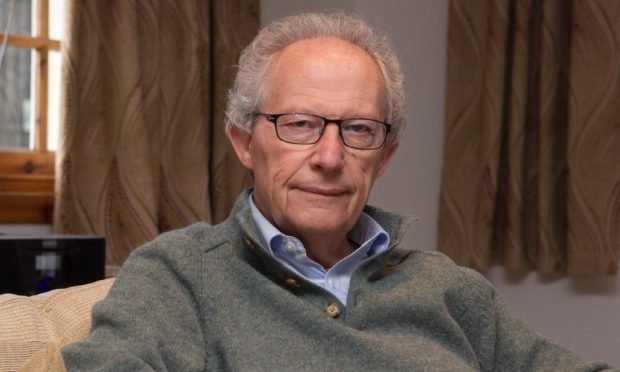
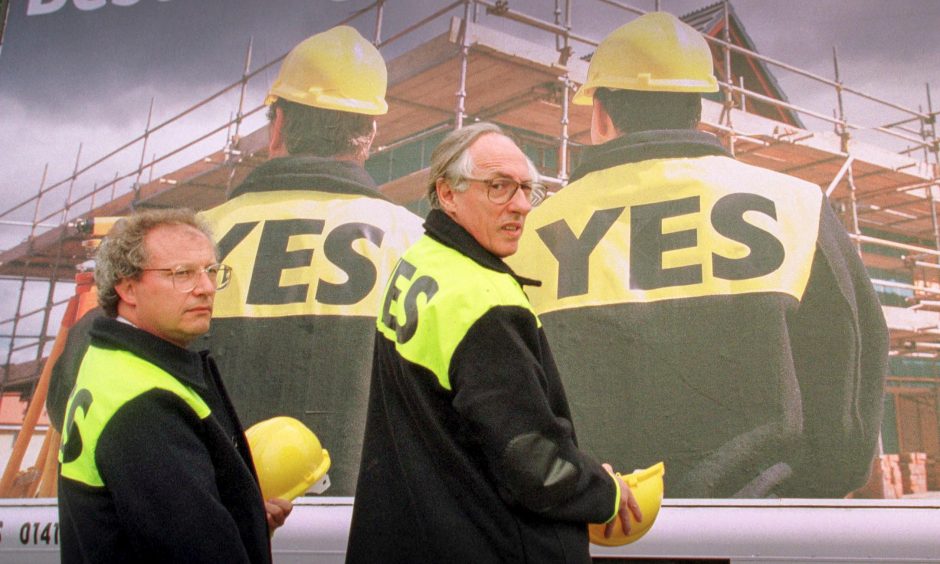
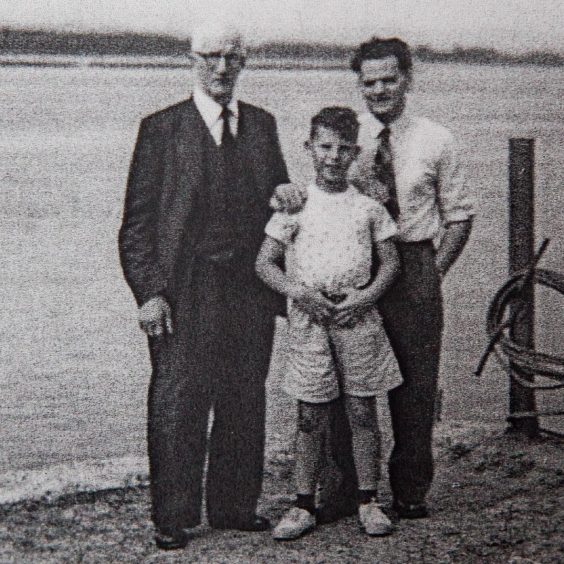
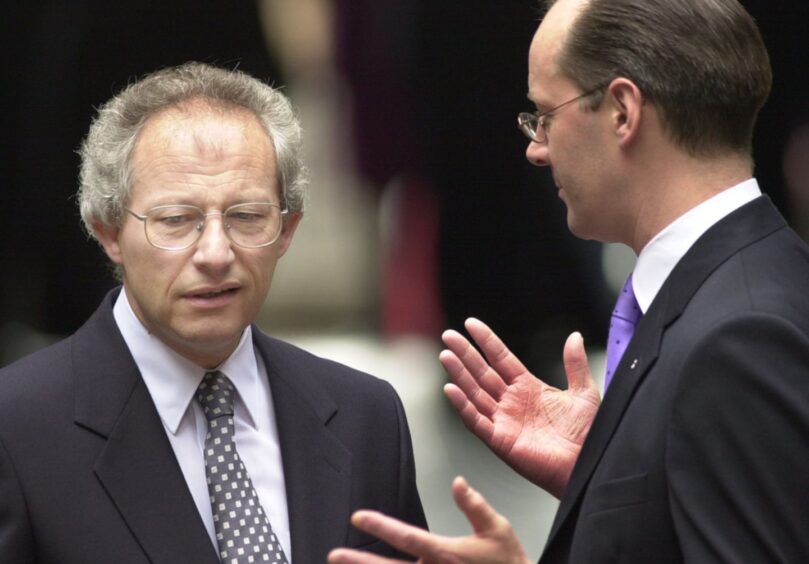
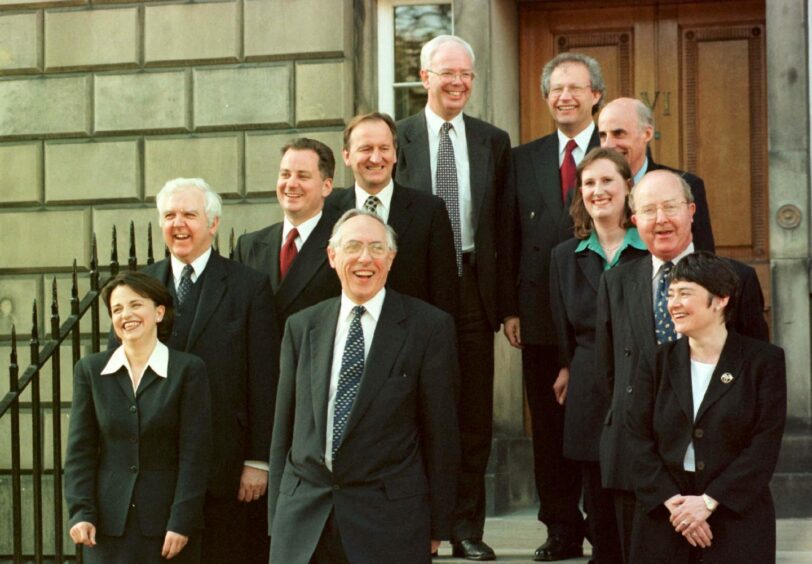
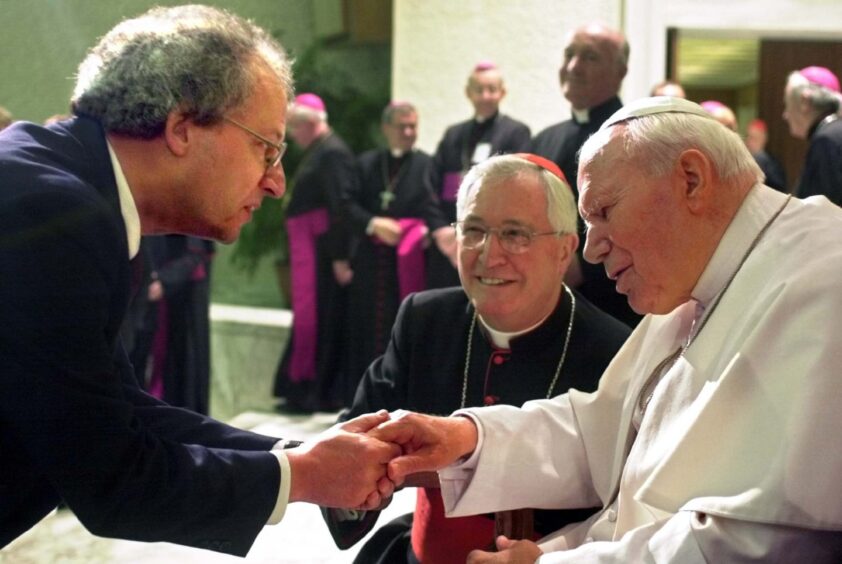
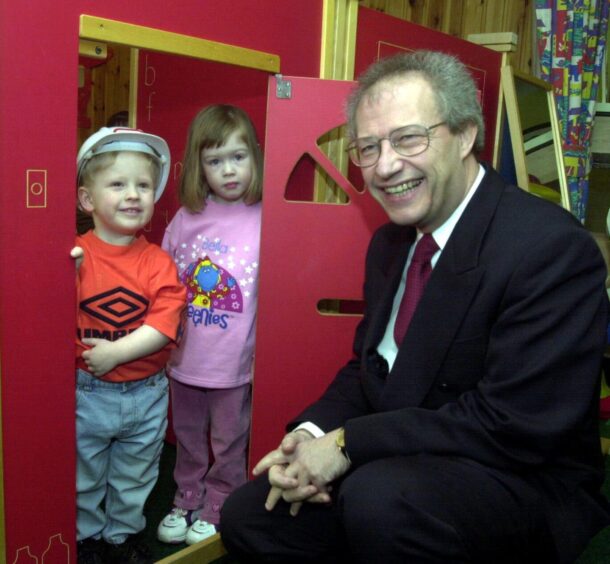
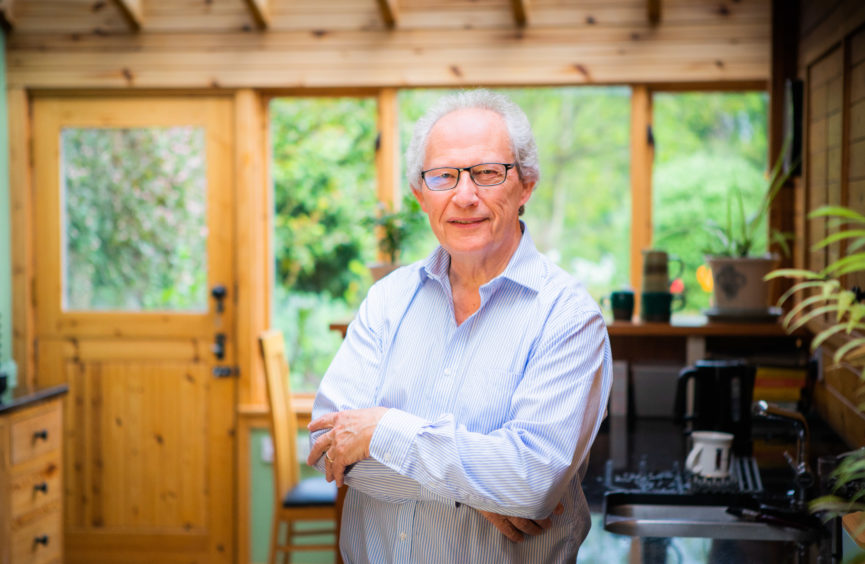


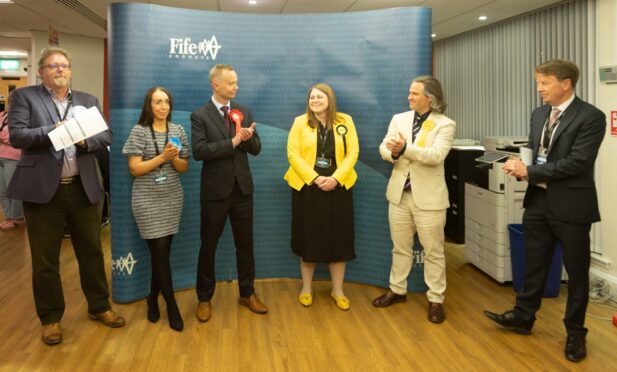


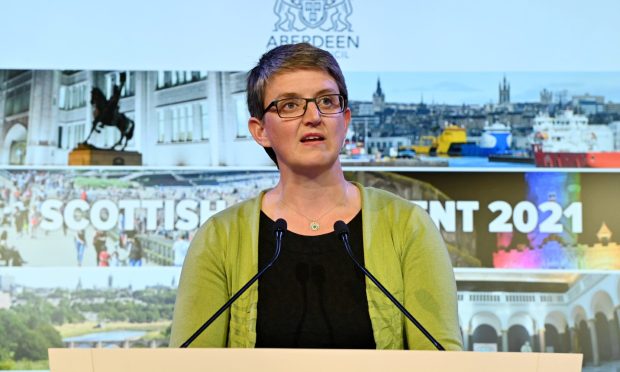
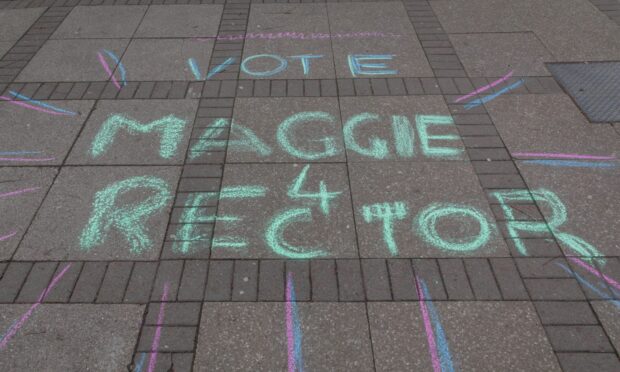


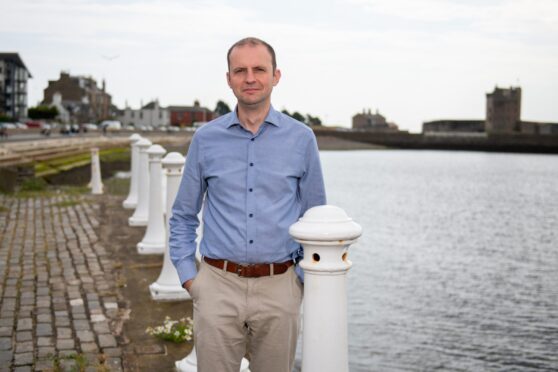
Conversation